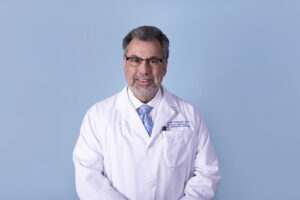Post-concussive headaches, also known as post-traumatic headaches, are a common and distressing symptom experienced by individuals who have suffered a traumatic brain injury (TBI) or concussion but can also occur following cervical whiplash and cranial (head) trauma. These headaches can significantly impact a person’s quality of life and recovery process.
What Are Post-Concussive Headaches?
A post-concussive headache is a type of headache that occurs following a reported concussion or mild traumatic brain injury. Concussions can be due to a blow to the head, violent shaking of the head, or a sudden jolt to the body that affects the brain’s function due to accelerative or decelerative forces as can occur in whiplash. While not all concussions lead to post-concussive headaches, they are a common and often debilitating symptom in some cases. It should be remembered that there are multiple other potential causes of post-traumatic headache that may occur with these types of traumatic injuries that have nothing to do with concussion. Clinicians should also remember that headaches may be due to multiple different post-traumatic pain generators.
Common Causes of Post-Concussive Headaches
- Cranial / head trauma
- Cervical whiplash
- Migraine
- Tension type headache
- Temporomandibular joint dysfunction
- Neuritic pain generators (e.g. occipital neuralgia, supra-orbital neuralgia)
- Medication overuse headache
- Affective disorders including PTSD, depression and anxiety
Symptoms of Post-Concussive Headaches
Post-concussive headaches can vary in their presentation, but common symptoms include:
- Head Pain: The most obvious symptom is a headache, which can range from mild to severe and may have different qualities (e.g., throbbing, stabbing, or a constant ache). The pain can be very localized, lateralized or bilateral or a combination of same.
- Sensitivity to Light and Noise: Individuals with post, or a combination of same-concussive headaches often become more sensitive to light (photosensitivity) and noise (phonosensitivity).
- Nausea and Vomiting: Some people experience nausea and may even vomit if pain is severe enough.
- Dizziness and Vertigo: Balance problems, dizziness, and a sensation of spinning (vertigo) are common complaints although cervical causes for these are common in PCH.
- Difficulty Concentrating: Cognitive symptoms, such as difficulty concentrating, memory problems, and mental fogginess, may accompany the headaches.
- Sleep Disturbance: Problems initiating and/or maintaining sleep.
- Behavioral changes: Chronic pain may cause frustration and irritability
- Affective illness: Pain may lead to depression and anxiety related symptoms
Diagnosis
Diagnosing post-concussive headache should include a comprehensive evaluation by an appropriately educated and experience physician who understands the complexity of these types of traumatic injuries. The most accurate diagnoses will be driven by acquisition of a detailed medical and headache history and a thorough physical examination (including adequate facial, jaw, head and neck palpatory / hands on exam). Imaging may yield additional information but these types of headaches are generally NOT due to post-traumatic surgically addressable problems.
Treatment Options
The treatment of post-concussive headaches can be complex and may require a multidisciplinary approach. In many cases, clinicians evaluating these patients take a blinders on approach to posttraumatic headache as equaling migraine and this results in many unsuccessful medication trials. This further emphasizes the need to see a specialist who is adept at the hands-on physical examination of the posttraumatic headache patient as well as the treatment of same which may include manual medicine, topical medications, oral medications, injectable medications, neuromodulation, physical therapy referral, and psychological counseling, among other interventions. Complementary medicine therapies can be considered including craniosacral therapy, acupuncture and massage. So-called “shotgun” approaches such as treating with opiate pain medications without identifying specific pain generators should definitely be avoided. The goal should be to treat specific pain generators which will have different treatments depending on the nature of the condition. Ultimately, the goal should be to modulate pain and improve function and overall quality of life.
Prognosis
Evidence-based literature on prognosis is lacking. The earlier patients are seen and appropriately diagnosed the more likely it is that quantification of posttraumatic headache pain will occur based upon this clinician’s nearly 40 years of clinical experience. The natural history of the different types of pain generators responsible for posttraumatic headache is variable which is another factor that limits general comments about prognosis of this type of posttraumatic impairment. It is rare to see a patient vocationally disabled secondary to posttraumatic headache following concussive type injuries if they received timely and appropriate care in this clinician’s experience.
Conclusions
Post-concussive headache can be a challenging and debilitating pain disorder.. Understanding PCH symptoms, clinical presentation, causes, diagnostic work-up, and treatment options is crucial for clinicians evaluating and treating this group of patients. Patients with PCH are encouraged to seek out clinicians with specific expertise in this disorder. If you are having trouble finding clinicians with this experience we recommend consulting with your local brain injury Association or running a web-based search. If you can find a physician whether neurologist or physiatrist who is “brain injury medicine” certified that may increase chances of finding a physician with a greater level of expertise in this type of problem. Early specialized assessment and a multidisciplinary approach to treatment are typically key factors associated with more rapid accurate diagnosis and earlier effective treatments leading to improved outcomes and expedited return to more normal daily activities and function.

ABOUT THE AUTHOR
Nathan Zasler MD is Founder, CEO & Medical Director of Concussion Care Centre of Virginia, Ltd., as well as Tree of Life Services, Inc. Dr. Zasler is board certified in PM&R, fellowship trained in brain injury and subspecialty certified in Brain Injury Medicine. You can read more about Dr. Zasler HERE.